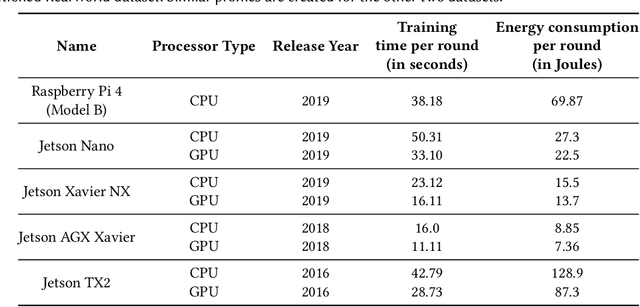FLAME: Federated Learning Across Multi-device Environments
Paper and Code
Feb 17, 2022



Federated Learning (FL) enables distributed training of machine learning models while keeping personal data on user devices private. While we witness increasing applications of FL in the area of mobile sensing, such as human-activity recognition, FL has not been studied in the context of a multi-device environment (MDE), wherein each user owns multiple data-producing devices. With the proliferation of mobile and wearable devices, MDEs are increasingly becoming popular in ubicomp settings, therefore necessitating the study of FL in them. FL in MDEs is characterized by high non-IID-ness across clients, complicated by the presence of both user and device heterogeneities. Further, ensuring efficient utilization of system resources on FL clients in a MDE remains an important challenge. In this paper, we propose FLAME, a user-centered FL training approach to counter statistical and system heterogeneity in MDEs, and bring consistency in inference performance across devices. FLAME features (i) user-centered FL training utilizing the time alignment across devices from the same user; (ii) accuracy- and efficiency-aware device selection; and (iii) model personalization to devices. We also present an FL evaluation testbed with realistic energy drain and network bandwidth profiles, and a novel class-based data partitioning scheme to extend existing HAR datasets to a federated setup. Our experiment results on three multi-device HAR datasets show that FLAME outperforms various baselines by 4.8-33.8% higher F-1 score, 1.02-2.86x greater energy efficiency, and up to 2.02x speedup in convergence to target accuracy through fair distribution of the FL workload.
 Add to Chrome
Add to Chrome Add to Firefox
Add to Firefox Add to Edge
Add to Edge